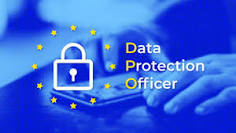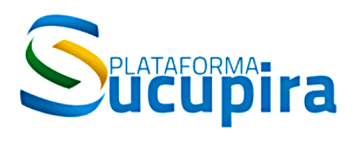ETHICS POLICY
Ethics Policy
This statement is based on the recommendations for Best Practices from COPE for Scientific Journal Editors.
The journal is committed to ethics, good practices, and the quality of its publications. Ethical behavior standards are expected from all actors involved in the process: the author, editor, reviewers, librarian, lawyer, journalist, layout designer, IT, D.P.O, and editor-in-chief.
Research Ethics
Research Involving Human Subjects
Research involving human beings, human materials, human tissues, or human data must declare that investigations were carried out following the rules of the Declaration of Helsinki of 1975. At a minimum, a statement including the project identification code, the approval date of the Research Ethics Committee (REC), and the name of the ethics committee or institutional review board must be declared in the section. (https://www.wma.net/what-we-do/medical-ethics/declaration-of-helsinki/)
Non-Interventional Studies: For research, questionnaires, or social media surveys, all participants must be fully informed about whether anonymity is guaranteed, why the research is being conducted, how their data will be used, and if there is any associated risk. As with all research involving human subjects, ethical approval from an appropriate ethics committee must be obtained before conducting the study.
Written Informed Consent for Publication must be obtained from participating patients. Data relating to individual participants must be described, but private information that identifies participants need not be included unless the identifiable materials are relevant to the research, such as photographs showing a specific symptom. Patients' initials or other personal identifiers should not appear in any images. For manuscripts that include case details, personal information, and/or patient images, authors must obtain signed informed consent from patients before submitting to the journal. Patient details should be anonymized as much as possible, e.g., do not mention specific age, ethnicity, or occupation if not relevant to the conclusions. Editors reserve the right to reject any submission that does not meet these requirements.
If the study reports research involving vulnerable groups, an additional check may be carried out. The submitted manuscript will be examined by the editorial office, and upon request, documentary evidence must be provided. Furthermore, when studies describe groups by race, ethnicity, gender, disability, disease, etc., the reason for this categorization must be clearly stated in the article.
Responsibilities of Editors
- Publication Decision: The journal editor is responsible for deciding which of the articles submitted to the journal should be sent for double-blind peer review and subsequently, if approved, for publication. The editor is guided by the journal's editorial board policies and limited by such current legal requirements regarding defamation, copyright infringement, and plagiarism. The editor must consult the editorial board or reviewers when making decisions.
- Fair Play: The editor must evaluate manuscripts for their intellectual content without regard to race, gender, sexual orientation, religious belief, ethnic origin, citizenship, or political philosophy of the authors.
- Confidentiality: The editor and any editorial staff must not disclose any information about a submitted manuscript to anyone other than the corresponding author, reviewers, potential reviewers, other editorial advisers, and the editor, as appropriate.
- Disclosure and Conflicts of Interest: The editor must not use unpublished information in their own research without the express written consent of the author. The editor must refrain from considering manuscripts in which they have conflicts of interest resulting from competitive, collaborative, or other relationships or connections with any of the authors, companies, or institutions related to the manuscripts.
Responsibilities of Reviewers
- Contribution to Editorial Decision: Peer review assists the editor in making editorial decisions, and through editorial communication with the author, it may also help the author improve the article.
- Promptness: Any selected reviewer who feels unqualified to review the research reported in a manuscript or knows that an immediate review will be impossible should notify the editor and withdraw from the review process.
- Confidentiality: All manuscripts received for review must be treated as confidential documents. They must not be shown to or discussed with others.
- Standards of Objectivity: Reviews should be conducted objectively, and referees should express their views clearly with supporting arguments.
- Acknowledgment of Sources: Reviewers should identify relevant published work that has not been cited by the authors. The reviewer should also bring to the editor's attention any substantial similarity or overlap between the manuscript under consideration and any other published paper of which they have personal knowledge.
- Disclosure and Conflicts of Interest: Privileged information or ideas obtained through peer review must be kept confidential and not used for personal advantage. Reviewers should not consider manuscripts in which they have conflicts of interest resulting from competitive, collaborative, or other relationships or connections with any of the authors, companies, or institutions related to the articles.
Responsibilities of Authors
- Reporting Standards: Authors of reports of original research should present an accurate account of the work performed as well as an objective discussion of its significance. Underlying data should be represented accurately in the paper. A paper should contain sufficient detail and references to permit others to replicate the work. Fraudulent or knowingly inaccurate statements constitute unethical behavior and are unacceptable.
- Originality and Plagiarism: Authors must ensure that they have written entirely original works, and if authors have used the work and/or words of others, that this has been appropriately cited or quoted. Plagiarism in all its forms constitutes unethical publishing behavior and is unacceptable.
- Multiple, Redundant, or Concurrent Publication: An author should not, in general, publish manuscripts describing essentially the same research in more than one journal or primary publication. Submitting the same manuscript to more than one journal concurrently and/or publishing the same article in different journals constitutes unethical publishing behavior and is unacceptable.
- Acknowledgment of Sources: Proper acknowledgment of the work of others must always be given. Authors should cite publications that have influenced the nature of the reported work. Information obtained privately, such as in conversation, correspondence, or discussion with third parties, must not be used or reported without explicit, written permission from the source. Information obtained in the course of confidential services, such as manuscript review or grant applications, must not be used without the explicit written permission of the author involved in these services.
- Authorship of the Paper: Authorship should be limited to those who have made a significant contribution to the conception, design, execution, or interpretation of the reported study. All those who have made significant contributions should be listed as co-authors. Where there are others who have participated in certain substantive aspects of the research project, they should be acknowledged or listed as contributors. The corresponding author should ensure that all appropriate co-authors and no inappropriate co-authors are included on the paper, and that all co-authors have seen and approved the final version of the paper and agreed to its submission for publication.
- Disclosure and Conflicts of Interest: All authors should disclose in their manuscript any financial or other conflicts of interest that could be construed to influence the results or interpretation of their manuscript. All sources of financial support for the project should be disclosed.
- Fundamental Errors in Published Works: When an author discovers a significant error or inaccuracy in their own published work, it is the author's obligation to promptly notify the journal editor or publisher and cooperate with the editor to retract or correct the paper.










